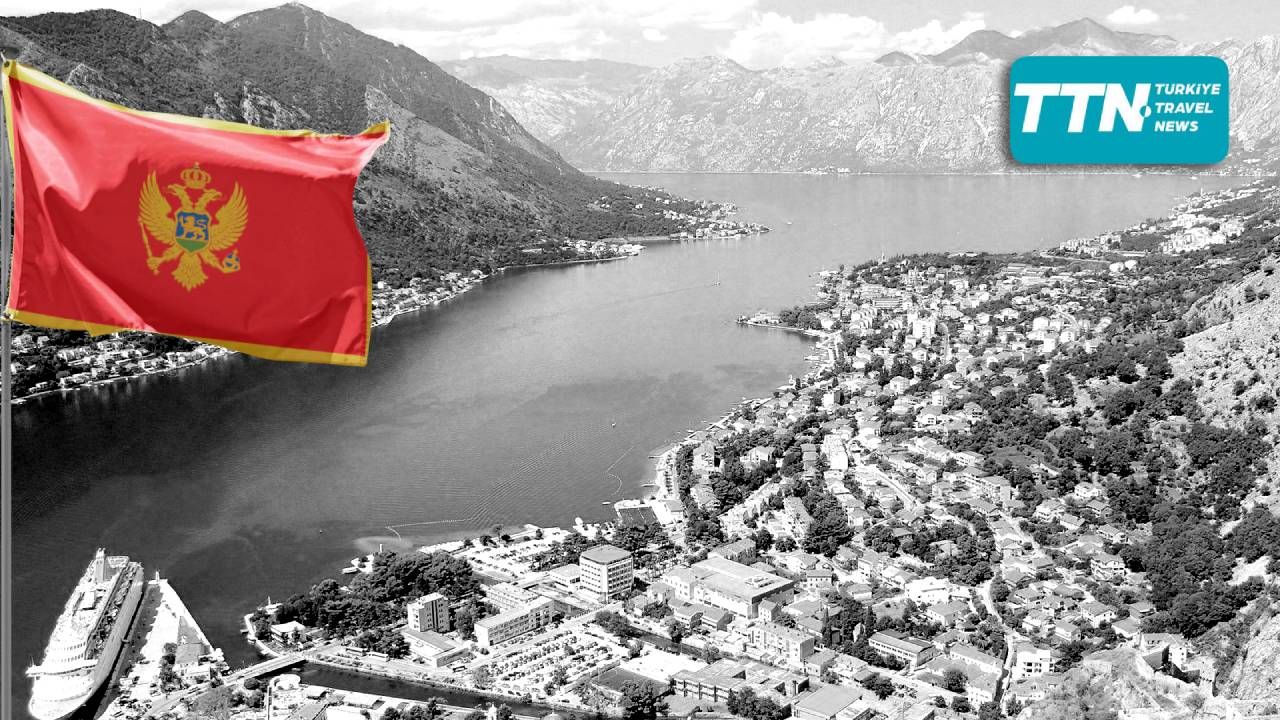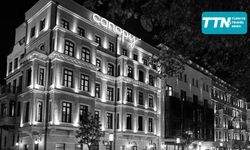Montenegro has suspended its visa-free travel policy for Türkiye following a wave of violent incidents involving Turkish nationals in the capital, Podgorica, the country's President, Jakov Milatović, announced today on social media.
“Montenegro needs a more responsible migration policy, resolute against abuse and crime, and fair to all who respect our laws," said the president in the statement.
He added that he would hold “intensive talks” with Ankara over future visa arrangements.
Statement from Foreign Ministry
Türkiye's Foreign Ministry said it had contacted Montenegrin officials immediately after the incidents.
“Necessary measures were taken to ensure the safety of our citizens,” the ministry said in a written statement. “Developments are being closely monitored, and contact and coordination with Montenegrin authorities continue without interruption.”
According to Turkish diplomatic sources cited by state media, Foreign Minister Hakan Fidan held phone conversations with Montenegrin Prime Minister Spajić and Deputy Prime Minister and Foreign Minister Ervin Ibrahimović.
Fidan reportedly conveyed Türkiye’s expectation that the safety and rights of its citizens in Montenegro be protected. Montenegrin officials provided assurances on the matter.
The measures come in the wake of violence that began on the night of Oct. 25. According to local and international media reports, a Montenegrin citizen was stabbed following a verbal dispute with a group of Turkish nationals. The victim’s injuries were not life-threatening.
The following day, tensions escalated as several vehicles with Turkish license plates were attacked. Some Turkish nationals sought refuge in a casino and barricaded the entrance. Later that night, a restaurant owned by Turkish citizens in Podgorica was set on fire.
Montenegrin police detained dozens of Turkish and Azerbaijani nationals. One Turkish and one Azerbaijani citizen were arrested in connection with the stabbing.
An additional 43 individuals were detained on suspicion of lacking legal residency documentation. Authorities said seven detainees were fined, and eight were issued deportation orders.
Interior Minister Danilo Šaranović stated that around 13,000 of the 100,000 foreigners holding temporary or permanent residency in Montenegro are Turkish nationals.
Officials note a recent rise in interest from Turkish citizens seeking to work or start businesses in the country, which has a population of about 620,000 and is heavily reliant on tourism.
Montenegro is a candidate for European Union membership and is expected to accelerate accession talks in the coming years.
Montenegro’s decision alarms Turkish tourism sector
Montenegro’s recent decision to impose visa requirements on Turkish citizens has sent ripples of concern through Türkiye’s tourism industry. Leading travel agencies warn that the move could disrupt outbound tourism operations and dampen the appeal of one of the region’s fastest-growing destinations.
A aapidly growing market under threat
Ali Onaran, Chairman of Prontotour, highlighted that Montenegro has become one of the most popular and accessible destinations for Turkish travelers in recent years.
“Montenegro is a destination that sells very easily — our guests love its sea, culture, and cuisine,” Onaran told Turizm Ekonomi. “Before the pandemic, we used to send around 500–600 visitors a year. In just three to four years, that number increased tenfold, reaching nearly 8,000 after the pandemic.”
According to Onaran, Montenegro’s affordability has been a key driver of this growth. However, he warns that visa procedures could alter this trajectory.
“If the visa costs are similar to the Schengen visa or the process becomes too burdensome, it will make things difficult for us,” he said. “But if they introduce a lighter system, such as a €20–30 visa-on-arrival model like in Cairo, the operations wouldn’t be significantly affected. For now, reservations continue, but the real season starts in summer. I hope the visa conditions remain manageable.”
“It will affect the entire Balkan region”
Tolga Tekin, Head of Overseas Tours at Jolly, echoed similar concerns, emphasizing that the decision would not only affect Montenegro but also the broader Balkan region.
“The Balkans are one of our most active markets,” Tekin explained. “Around 200,000 Turkish travelers join Balkan tours each year. Montenegro is often part of a multi-country package or sold as a standalone sea-sand-sun destination. Its visa-free status was a major reason for its popularity—even for quick weekend trips.”
Tekin stressed that Montenegro is an integral part of the Balkan tour circuit.
“When you start a route from North Macedonia and travel up through the region before returning from Belgrade, Montenegro is a key stop,” he said. “So this decision would impact the entire Balkan itinerary.”
While acknowledging the local tensions that reportedly triggered the visa move, Tekin expressed hope that a temporary issue would not escalate into a lasting tourism barrier. “There’s even talk of implementing a visa process through travel agencies as a form of control mechanism,” he added.
Political pressure behind the decision
Cemal Benli, Chairman of PCS Tur, which brings thousands of Turkish tourists to Montenegro annually, offered further context.
“The incident that sparked this was between Turkish and Montenegrin individuals who work together. One Montenegrin was stabbed multiple times but is not in critical condition,” Benli explained. “Although it was an isolated case, public pressure turned it into a political issue. Citizens urged their parliamentarians to revise visa regulations for Türkiye, and that’s what led to this decision.”
Benli noted that discussions about Montenegro joining the Schengen visa regime had been ongoing, with changes originally expected around 2028.
“We’ve taken 18,000 tourists to Montenegro since January 1, 2025, and expect to close the year with 20,000,” he said. “While Budva is a sun-and-sea destination, Montenegro is also a key part of the Balkan tour route. If it becomes a visa country, that route will be completely disrupted—affecting around 100,000 travelers.”
An uncertain future for gegional tourism
As the industry awaits clarity on the implementation details of Montenegro’s visa policy, Turkish tour operators remain cautiously hopeful that pragmatic solutions will prevail. Whether through simplified visa-on-arrival systems or agency-based applications, the sector is calling for balance — to avoid undoing years of growth and cultural exchange between the two nations.






